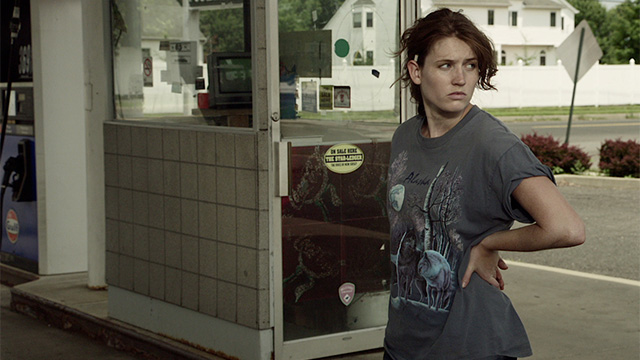One of two American student films to premiere at Cannes in 2012, Abigail is an elegant, naturalistic film about a gas station attendant’s frustrated attempts to leave her hometown.
The film won second prize at Cinéfondation. The jury that year was led by Jean-Pierre Dardenne, whose own intensely naturalist films, which he codirects with his brother Luc, have won the Palme d’Ors twice thus far.
It was a fortuitous encounter; Abigail is clearly in the same tradition as the Dardennes. Both tell minimalist stories set in working class milieus, demand great focus from an audience, and reward that patience with myriad tiny insights.
Study the frames in this film and you will see an expertly crafted visual world, defined by the heartbreaking contrast between Abigail’s inertia and the perpetual motion that surrounds her.
It’s an astounding visual metaphor for America’s working poor; increasingly omitted from the American dream, yet forced daily to serve its chosen few. All this is to say that if the film’s aesthetic can prove difficult at times, so too can a life marred by poverty and abuse. The film’s aesthetic thus not only deepens and enhances the story, it is the story.
Our capitalist merry-go-round is also the preserve of Kelly Reichhardt’s stunning 2008 film Wendy and Lucy, in which Michelle Williams plays another poor American woman struggling to get by. Like Williams before her, Abigail’s Ashley Peoples evokes that same haggard, stoic beauty of the American everywoman. Neither Peoples nor Williams show much emotion, they are far too wizened for that. What they rather show is the tireless resolve of someone trying to survive in a largely dysfunctional and indifferent society.
It’s not an easy subject, but in America, where the Census Bureau recently showed that almost 50 million people currently live in poverty, it’s an all too real one.

 Jason B. Kohl
Jason B. Kohl